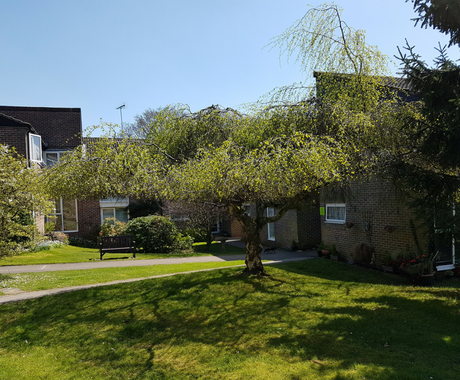The number of people who suffer from allergies is increasing every year. As recently as one hundred years ago, allergies were so uncommon that they didn’t even have a name.
Allergy sufferers, particularly those sensitive to pollen from flowers, trees, and grasses, often see an increase in symptoms such as sneezing, stuffiness, and even difficulty breathing when the temperature and humidity increases.
Tom Ogren is a pollen-allergy researcher and author of Allergy Free Gardening. His research brought him to the attention of a doctor in Christchurch, New Zealand whose daughter, then age 9, suffered from both pollen allergies and allergic-asthma. After consultation and a court case the offending Silver Birch trees, that flanked the playground, had to be removed. Tom Ogren’s expert testimony resulted in the court requesting that the non-native highly allergic Silver Birch trees be removed.
He recommended they were replaced with Red Maple trees; a female, pollen-free variety.
Allergy UK – The School Allergy Action Group
When the hay fever season is in full swing, the allergic reaction causing sneezing and itchy, watery eyes is quite distressing and can be so disruptive, particularly for school children.
Allergy UK, along with other organisations, is working on new recommendations for allergies in schools.
They have created The School Allergy Action Group (SAAG) to help schools develop a whole school awareness policy. SAAG provides a resource kit, which is ready for further pilot testing and is available as a free download for secondary schools.
Trees in schools and the workplace
Tom Ogren explains that it’s the male trees that produce the pollen (some more than others) and the female trees that capture the pollen. You could say that the female trees act as a natural air filter. But if there is a lack of female trees to trap the pollen, this leaves a huge amount of pollen in the air, making the atmosphere worse for allergy sufferers.
How familiar are you with the trees that surround your site? Could they be the cause of the uncomfortable effects of itchy eyes and runny noses that can be so distracting?
If you haven’t had your trees inspected recently, perhaps now is a good time to do so. We can help by offering a free consultation. To arrange a visit you can call us on 0800 975 4535, email us or complete a contact form.

